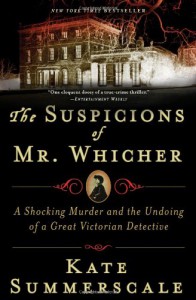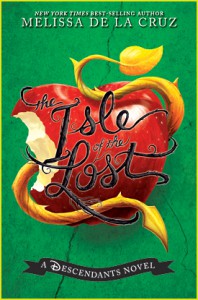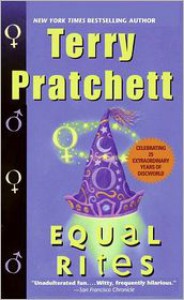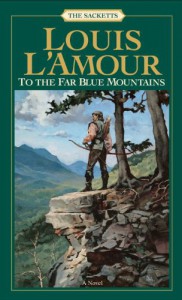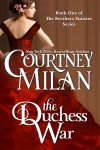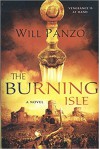

It took me quite a while to find the time to start this book, but once I did I had mainlined it in about 1 1/2 days before and after work, staying up till dawn to finish the last third. Not gonna lie: I cried. The story is written by both Kennedy Odede and Jessica Posner in alternating chapters progressing in roughly chronological orders although they both start their narrations at different points, eventually overlapping towards the end. As is mentioned in the ending notes, they wrote everything in hindsight based on their memories and journal accounts. As such, things were elided or perhaps forgotten as tends to be the nature of memory and some of their personal opinions were probably sharpened by maturity.
SHOFCO is the abbreviation for Shining Hope for Communities, the name of the organization started by Kennedy to instigate change in the slum he lived in, called Kibera, in Kenya. (Linked to the official website if interested.)
The introduction provides a concise summary of the book and tells you ahead of time that Kennedy and Jessica will eventually develop a romantic relationship, but be warned this is not exactly a fairy tale. See below:
"SHOFCO is a love story, but it’s also a lesson in development. The organization succeeded in part because it had someone with local knowledge and charisma to lead the way, and in part because it had a policy wonk foreigner who could help open overseas wallets. That’s a potent partnership. If it’s just foreigners, there’s a risk that locals will see them as cows to be milked, or that a project won’t have the necessary buy-in from local people. Indeed, SHOFCO is successful partly because it didn’t begin as an aid program at all but as a local empowerment movement, with Kennedy and his buddies organizing soccer games and street performances decrying rape. Only after it was well established did it take on a more structured dimension, building effective partnerships."
One of the things I really liked was how brutally honest the accounts were. There is no hiding or holding back of the horrible endings some people faced, many of the persons mentioned, especially in Kennedy's narration, ultimately die. The matter of fact way it is related is sobering and reminds you that this a real life story, and yes, it really is that bad outside of our Western bubble. That brings me to the other thing I liked about this book - Jessica's narration is bluntly relatable, acknowledging how privilege is like a lottery we don't choose to be born into and how difficult it is to find a "right" way to react to that realization.
Jessica's quotes:
-- "“Do NOT get married while you are here. There is always a student who ends up married. Don’t be that student,” warns Donna. I roll my eyes." I love this quote in connection with this later one which shows how young and impetuous Jessica was, a key part of her personality that bore fruit to her and Kennedy's later joint efforts. "I am always willing to sacrifice convenience for fashion. My mother couldn’t understand why I so desperately needed to bring my new sundress. How could she be so dense? I. Just. Needed. It. In that dress, I felt ready for anything. In the end, her sense had won out."
-- "I realize how wedded we are in America to knowing all the details." The insightful realizations about her own culture is very interesting each time it is brought up.
-- "I realize I came here in part to prove my openness, to be able to say that I survived it, but that is not what Alice needs. She needs to get her husband out of jail, and to bring her kids home. It’s not altogether unreasonable that she hopes I might be a pathway to that. I feel a faint disappointment—in us both."
-- "And I can’t help but think how unfair and utterly random it is that I was born into a place that gave me so much; to be so blessed that I was concerned mainly with finding happiness, not consumed by the daily drudgery of survival. No matter what I feel for Kennedy and he for me, we are from two different worlds: mine of plenty and his of want."
-- "I think of what it means to be a teenager in America, necessarily pushing boundaries, making expected mistakes. Here there is no margin for error: a mistake, no matter how insignificant, dashes any small hopes to break the cycle of poverty. Here in Kibera the world is relentless and unforgiving." I remember reading somewhere that teenager culture in America was the first of its kind back in the 50s due to the unique set of socioeconomic and political circumstances at the time, and it has just developed since then. A good reminder that things are not the same everywhere.
-- "None of these life events are unfolding as we’d imagined. When I left Kenya, I was sure that our romance was over. Now we’ve resuscitated “us”—in response to extreme circumstances. A life-changing love has been reduced overnight to a practicality, boxes checked off on a marriage application." This, and other events that happen in their personal relationship, make one question the nature of it. Is it truly romantic? Was it romantic, ended, and then became a partnership built upon mutual trust and admiration and fueled by their passion to change the world via the girls' school? It is never actually quite explained, and maybe it doesn't have to be.
Kennedy's quotes:
-- “I could have had it before. I just never needed it. You know the problem with Americans? You always think the rest of the world is just waiting for your money.”
-- "Being tied to Catholic doctrines meant contradicting goals for our group. The church was adamantly against family planning and the use of condoms. This made no sense. I had watched too many teenage girls become mothers and lost too many dear friends to HIV/AIDS. Using protection seemed the only option." An opinion and truth that is not commonly expressed in Western literary sources due to the popularity of the Catholic church.
-- "For too long my community had been told that we could not do anything by ourselves without money from the outside, without the financial support and wisdom from the Western world. But since we were the ones who understood all the challenges we faced, we also had the best shot at finding the solutions." This feeds back to an earlier bit about how being told one is poor and good for nothing fuels poverty and poor decision making, perpetuating the cycle for generations; and how Kennedy's determination eventually snowballed into something greater.
-- "African problems would never be solved as long as advantaged people from the Western world thought that they could save our communities by starting organizations, or volunteering in Africa, without the actual and deep engagement of the communities they sought to improve. Without mutual understanding and real community leadership, foreign-led interventions ultimately do not succeed..." Self-sustaining movements, ideological.
-- “American men are so funny,” I tell her. “I don’t understand why they like women who are so thin they have to search the bed to find them.” LOL, in tribute to Rosemary who once told me the exact same thing. ;)




 4
4





